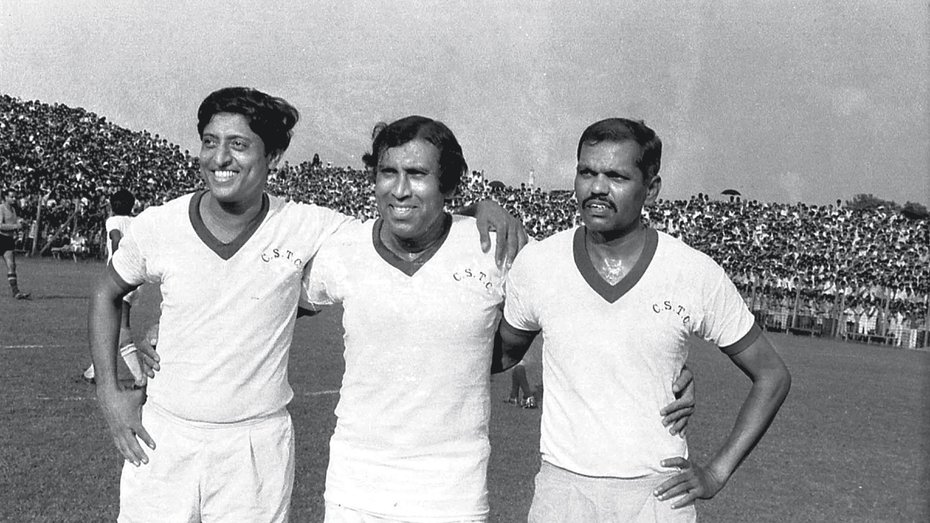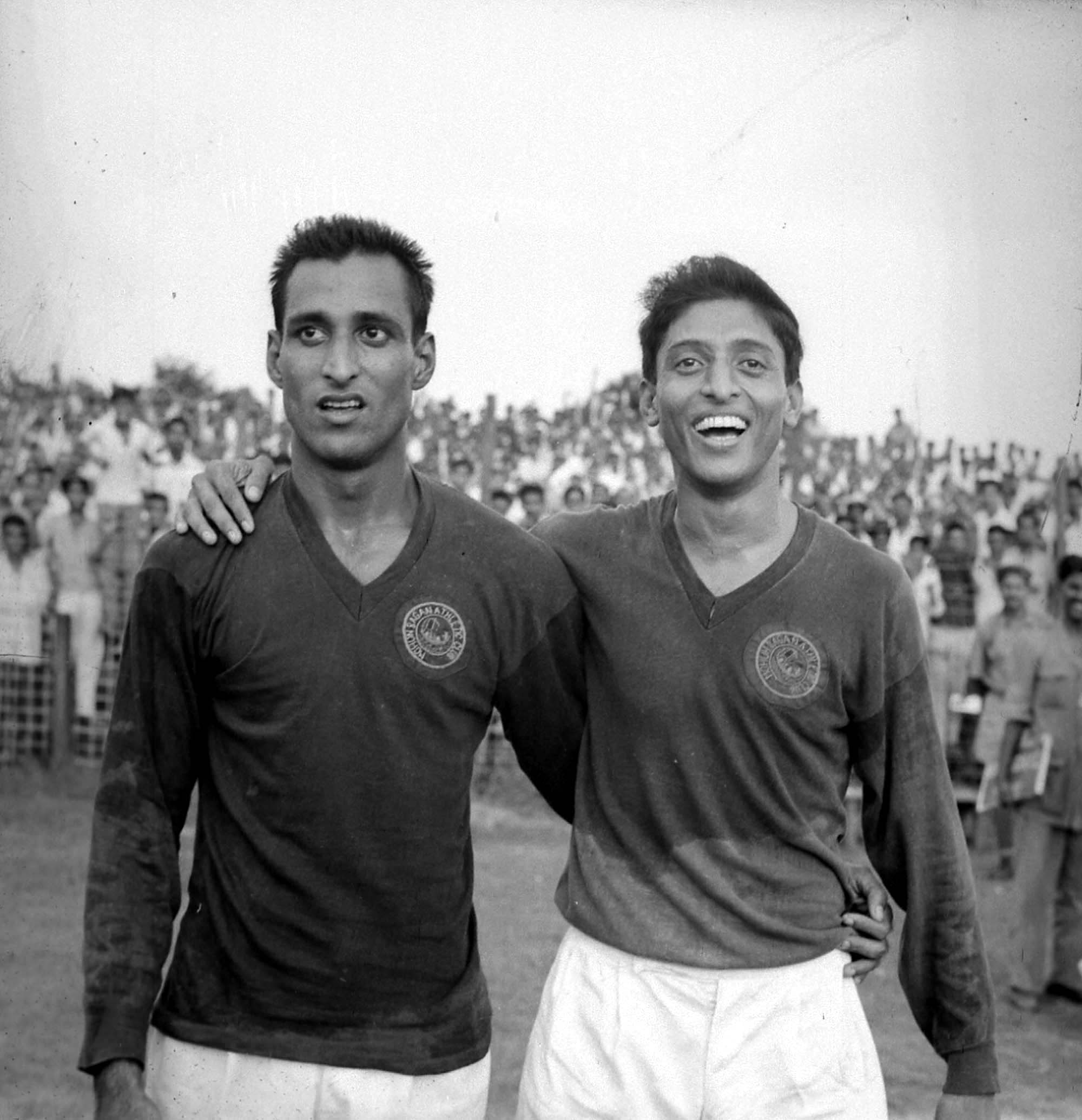Subimal “Chuni” Goswami came closest to being called a sporting polymath — he was an artist on the football field, played first class cricket well enough to lead Bengal to the Ranji Trophy final and his tennis was competicrickettive.
Goswami’s death comes 41 days after the passing of PK Banerjee — the two, along with Tulsidas Balaram, formed the revered “holy trinity” of Indian football in the late fifties till about the mid sixties.
Widely regarded as the first poster boy of Indian football, Goswami passed away after a prolonged illness a little after 5pm on Thursday.
Goswami, who turned 82 on January 15, is survived by wife Basanti and son Sudipto.
“He was admitted to a hospital today (Thursday) morning and was supposed to undergo tests on Friday. In the afternoon he suffered two cardiac arrests and it was all over,” a family source said.
A footballer par excellence, the former India captain donned the national team jersey in 36 matches between 1956 and 1964. His biggest achievement was to lead India to an Asian Games gold medal in 1962.
A rare natural talent, he also captained the Bengal cricket team after retiring from football. As a cricketer, he represented Bengal in 46 first-class games between 1962 and 1973. But it is for his exploits as a footballer that he will be remembered.

(From left) Chuni Goswami, PK Banerjee and Tulsidas Balaram at the Maidan. Telegraph file photo
Goswami’s charisma and fame could be gauged from an instance narrated by former Mohun Bagan captain Pradip Choudhury.
“We were returning from New Delhi and it was very late. Those days at the VIP Road Ultadanga crossing, there used be police checking. Chuni da was sitting on my left. The police officer did not see him. As he was asking the driver about the passengers, Chuni da just said ‘Officer, I am Chuni Goswami.’ The person flashed the torch and gave him a salute. Can you believe what respect this man had?” Choudhury told The Telegraph.

Chuni Goswami and Ashim Moulik of Mohun Bagan football team Telegraph file photo
During the golden days of the Durand Cup, which was usually played in Delhi, the ritual was India’s President would have tea with the two captains at half-time. Legend goes that then President Sarvapalli Radhakrishnan had told Goswami, who was then the Mohun Bagan captain: “I seem to meet you often.”
A deceptive forward, Goswami was very difficult to mark — he possessed remarkable ball control and dribbling skills. “He was always a threat to the rival defenders. You could never afford to leave him unmarked. It was very difficult to catch him as he used to always switch positions. Those were the days of five forwards and Chuni was the cynosure, whether as inside-left or inside-right,” Syed Shahid Hakim, Olympian and son of legendary coach Syed Abdul Rahim, said.
“His best match in India colours for me was against France in the Rome Olympics. Chuni was absolutely brilliant on that day and if luck had been with us, we would have won the match,” Hakim remembered. The match ended 1-1.
“He was a darling of the crowd. Smart, articulate and dashing. The last time I came to Calcutta, I had to prod him to come for the shooting of Maidaan, the biopic on my father,” Hakim said.
Goswami never played for India after 1964 but Hakim felt he could have continued. “Once I asked Chuni about his decision. He had answered: “Without Rahim saab as coach there is no fun playing for India.”
Goswami, credited for conceptualising and launching the Tata Football Academy in 1987, nurtured a host of young talents who later made a name for themselves.
Born in Kishoreganj district of undivided Bengal (now Bangladesh), Goswami played only for Mohun Bagan. Still he was revered as one of the greatest by East Bengal fans.
Such was this man’s aura.










